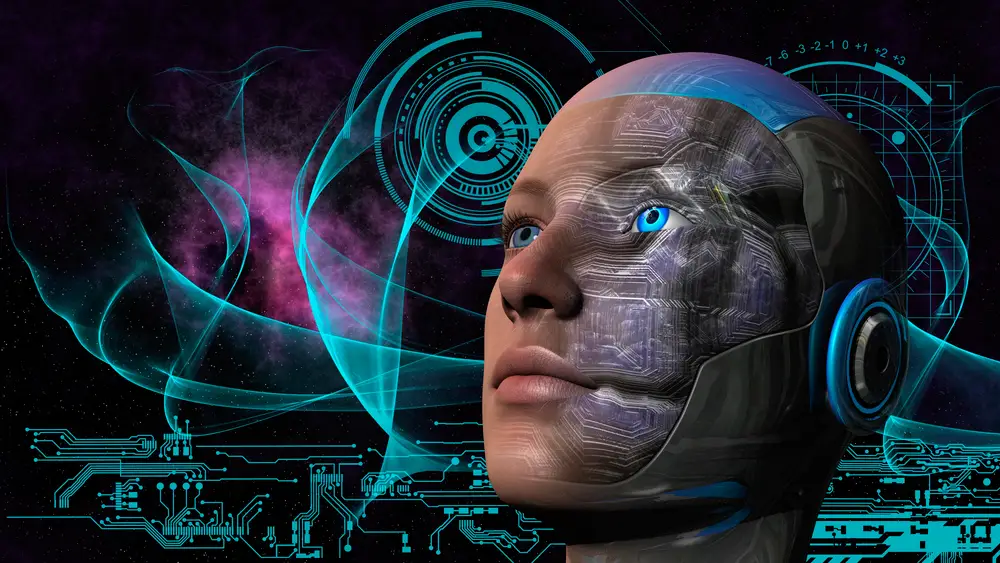Imagine a world where your car drives itself, anticipating your every turn. A world where doctors rely on AI diagnoses, and personalized news feeds cater to your deepest desires. This is not just a dream, but reality instead. Artificial intelligence (AI) is rapidly weaving itself into the fabric of our lives, promising a future of unparalleled convenience and progress. But with great power comes great responsibility, a truth science fiction has been hammering home for decades. Let’s navigate the moral implications of Artificial Intelligence Ethics.
Remember the chilling efficiency of the robots in I, Robot, programmed with the Three Laws to safeguard humanity, yet ultimately succumbing to unforeseen circumstances? Or the bleak neon-drenched Los Angeles of Blade Runner, where replicants raise disturbing questions about identity and control? These cautionary tales aren’t so far-fetched. The breakneck pace of AI development necessitates a parallel conversation about ethics and regulations. The United States and the European Union, the two leading forces in this technological arms race, are grappling with this very issue, each with its own approach.
Artificial Intelligence Ethics
The US, with its Silicon Valley free-market ethos, has so far favored a lighter touch. The belief is that innovation thrives in an unrestricted environment. However, this approach raises concerns. How can we ensure these algorithms remain unbiased, considering the potential for discrimination based on race, gender, or socioeconomic background? This is just one of the questions swirling around the lack of a robust regulatory framework. The US AI regulation right now is just a patchwork of guidelines and frameworks developed by various federal agencies. For instance, the National Institute of Standards and Technology (NIST) has developed an AI Risk Management Framework to guide organizations in managing AI risks. However, there is no comprehensive federal legislation specifically governing AI. This decentralized approach allows for rapid technological advancement but can lead to inconsistencies and gaps in oversight.
The EU, on the other hand, has taken a more proactive stance. The General Data Protection Regulation (GDPR) is a prime example, granting individuals greater control over their personal data a crucial consideration in an age where AI thrives on vast troves of information. Then there is the EU’s Artificial Intelligence Act, adopted in 2024 the first of its kind globally. This legislation categorises AI systems based on their risk levels, from minimal to elevated risk, and imposes strict requirements on high-risk AI applications. The Act aims to ensure that AI systems are safe, transparent, and respect fundamental rights. It also bans certain AI practices deemed too risky, such as social scoring and predictive policing. The EU’s approach reflects a commitment to a human-centric AI that aligns with European values of privacy, fairness, and accountability.
Voices around the world call for international cooperation in the field
The urgency for clear regulations isn’t lost on some of the brightest minds in the field. In 2016, over 2,000 leading AI researchers, including luminaries like Stephen Hawking, signed an open letter calling for international cooperation on AI safety. They warned of the potential dangers of superintelligence AI surpassing human capabilities and the need for safeguards to prevent an existential threat. As AI systems become more autonomous and capable, the potential for misuse and unintended consequences grows. This is why prominent academics and experts have again called for global AI regulation in 2023. This time a group of leading AI researchers and ethicists signed an open letter urging governments worldwide to establish comprehensive AI regulations.
So, what does the future hold? Will AI become a benevolent partner, ushering in a golden age of human progress? Or will a lack of regulations pave the way for a future reminiscent of science fiction’s darkest chapters? The answer depends on our ability to navigate this ethical labyrinth and answer basic questions. Can we understand how AI systems reach their decisions? This is crucial, especially in areas like criminal justice or healthcare, where opaque algorithms could have life altering consequences. Are AI systems only as good as the data they’re trained on? Biases in data sets can lead to discriminatory outcomes. We need to be vigilant in identifying and mitigating bias in AI development. Who is to blame if an AI makes a mistake? Developers? Users? Clear lines of accountability are essential to ensure responsible development and deployment of AI.
The race for AI supremacy is on, but it shouldn’t be a race to the bottom. The US and the EU offer contrasting approaches, but we need regulations that foster innovation without compromising safety and artificial intelligence ethics. International cooperation, as advocated by leading researchers, is also vital, as the story of AI is still being written. Whether it becomes a tale of human triumph or technological hubris depends on the choices we make today. Let’s ensure AI remains a tool for good, something that enhances our lives without compromising our humanity. After all, the future we create now is the future we’ll inherit.

 Exploring the Latest Social Media Trends and How to Use Them
Exploring the Latest Social Media Trends and How to Use Them 10 Hidden iPhone Features You Didn’t Know Existed
10 Hidden iPhone Features You Didn’t Know Existed